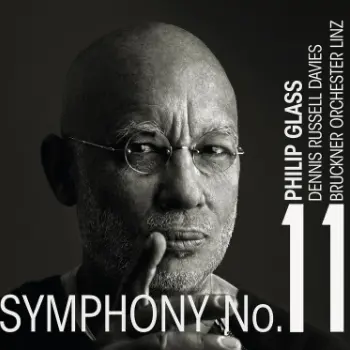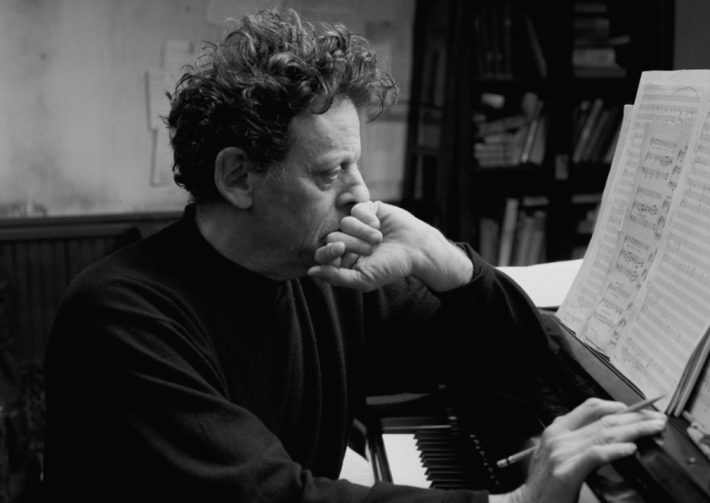It seems that the time when music critics debated whether Philip Glass can be considered a “classical music” composer, or rather frame him forcefully into this or that category has happily, almost, over. The famed American composer is sometimes treated as a modern-day Vivaldi, constantly re-arguing his musical case with the diverse means at his disposal, or rather, by some, as like Ravel the Bolero composer, who considered his famous piece an “orchestral tissue without music”.

Dennis Russell Davies has already championed all of Mr. Glass’ Symphonies, releasing a set of Symphonies 1 through 10 on 2016, conducting, from Symphony No. 6 onward, the Bruckner Orchester Linz, as he does in this new release.
Symphony No. 11 was premiered in 2017 and finds Glass the orchestrator at his most creative. Glass’ Symphony No. 7 (“A Toltec Symphony”, 2005) stood out in terms of incorporated instruments and choir, making it one of the more interesting Symphonies from the composer. We have the same uncanny originality of orchestral sound, but the general atmosphere is more inlined with the composer’s 9th Symphony – three movements, starting off with a hypnotic third, played by subtle changes of roles from all sections of the orchestra. From the beginning of the first movement, listen how almost imperceptibly the brass, harp, strings and percussions play (pun intended) with the almost elementarily simple theme. Or the typical “Glassian” string arpeggios coming in later-on in high register, on what sounds like the exact right moment, and with a nicely played solos from members of the brass and woodwind sections.
Throughout this performance, the Bruckner Orchester Linz members under Russell Davies play with the utmost conviction, their love and dedication to Glass’ music are apparent in every bar. Hear how lovingly the strings caress the melodically sweet second movement, or the enthusiasm in which the orchestra members charge when this middle movement changes in atmosphere and rhythm (with a nicely executed crescendo from the brass at 3:25).
Like the 10th Symphony, the third movement starts off with the percussion section of the orchestra – generally in this Symphony, this group’s role seems more sophisticated than before. The climax of this movement is high spirited indeed, masterfully incorporates all members of the ensemble without sounding too crowded, ending with a splash.
It’s worth noting the recording quality, which catches all the quiet as well as loud and thick layers of this Symphony, with a dynamic range engineered at an exemplary level.
Philip Glass – Symphony No. 11
Bruckner Orchester Linz
Dennis Russell Davies – Conductor
Orange Mountain Music, CD B07GW4CLZW














